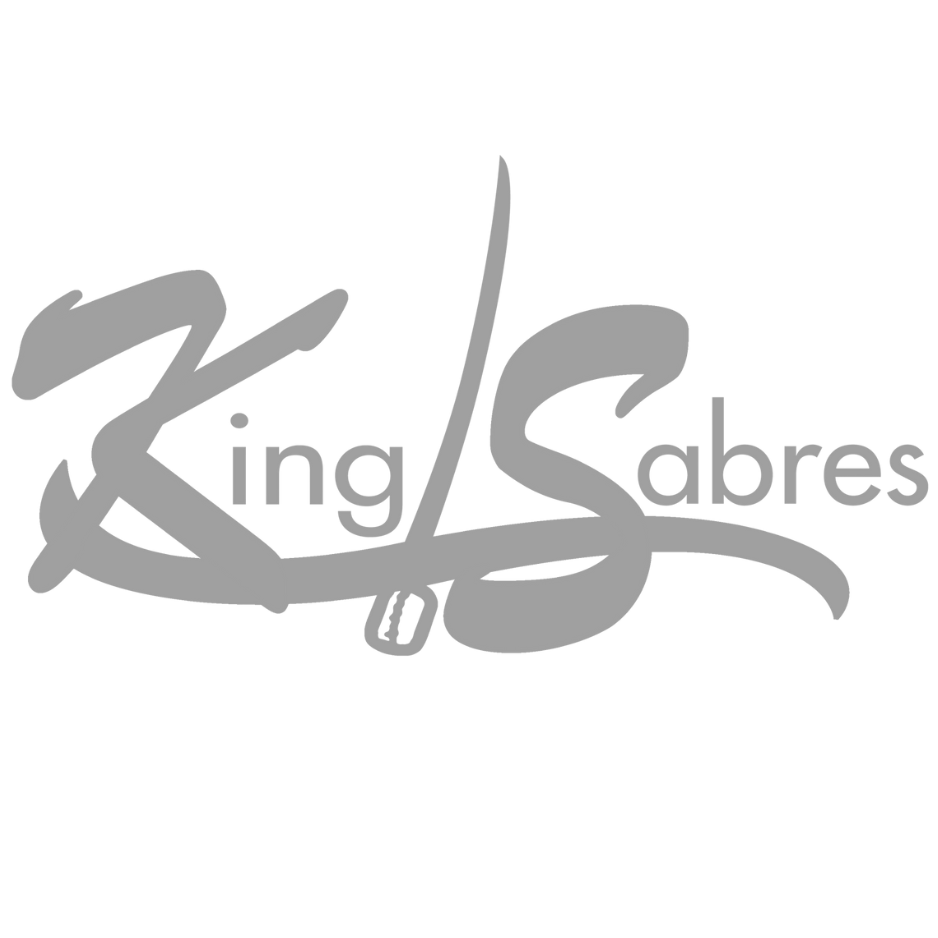By Kellie Finch
Last week, RCC Indoor Percussion presented four clinics at the Percussive Arts Society International Convention, also known as PASIC. This was the first time RCC had attended the convention and the first time an indoor percussion group from the West Coast had attended.
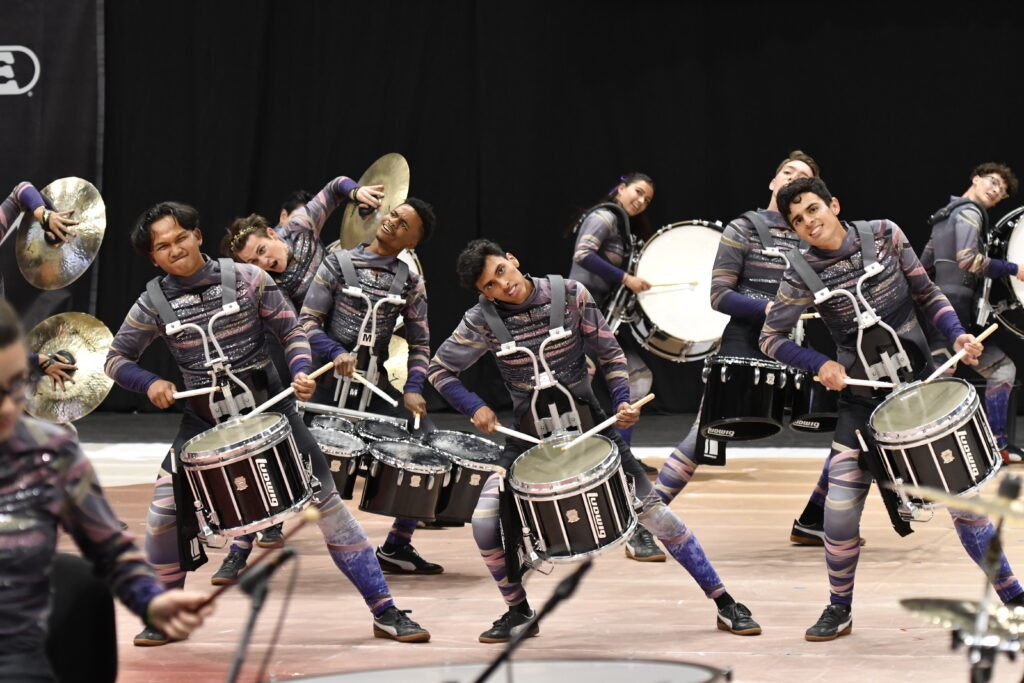
PASIC took place in Indianapolis, IN, from Nov. 13-16 and featured concerts, presentations, panels, and clinics for percussion educators around the country. It was presented by the Percussive Arts Society, known as PAS. Band directors, designers, show coordinators, and active marchers attended the four-day convention, learning about fundamentals, composition, health and wellness, marching, and research, among numerous other topics.
Back in April, RCC Program Director Joy Liu received a message from the PAS marching committee. PAS expressed interest in having more marching percussion representation at PASIC and asked if RCC was interested in presenting several clinics at the event. Apart from Rhythm X in 2011 and Music City Mystique in 2016, indoor percussion ensembles have not been present at PASIC, making RCC the third WGI organization to attend.
“We were interested, but of course, as you probably know, this activity takes so many resources, so this was definitely not in our budget,” Liu said. “We really needed to figure out all the logistical pieces before we said yes.”
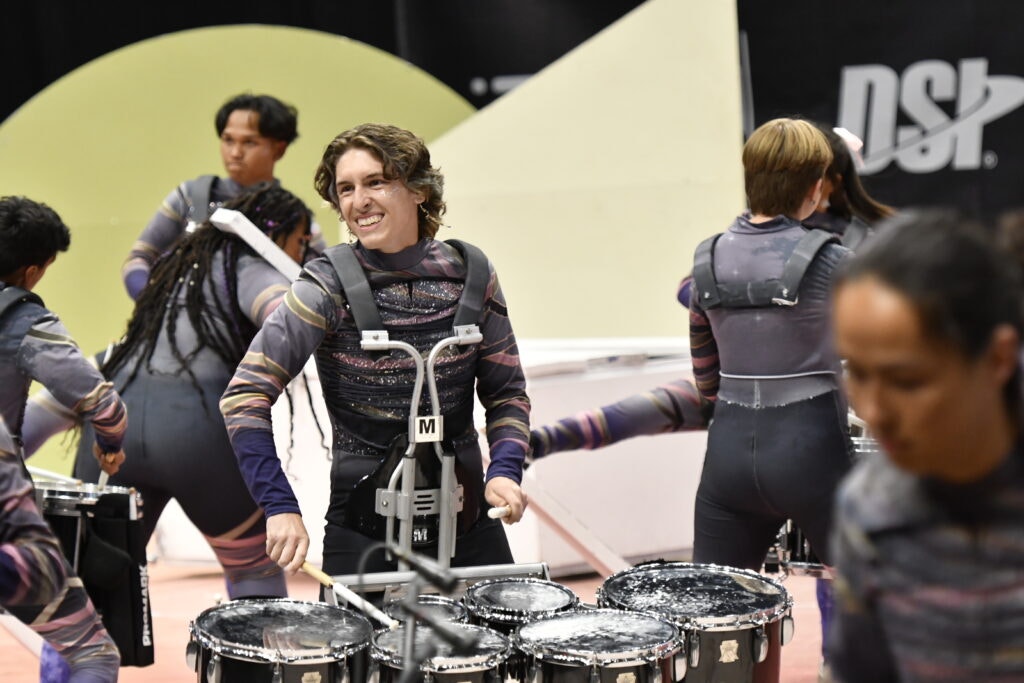
Liu knew traveling from Riverside, California, would be expensive, but she also recognized what an invaluable opportunity it could be for herself and her marchers. So, RCC banded together, found the resources, packed up, and headed for Indianapolis.
RCC’s clinic sessions at PASIC consisted of one on Thursday, two on Friday, and one on Saturday.
The Thursday clinic focused on show design. Led by RCC Front Ensemble Caption Head Brian Dinkel and Creative Director Tony Nuñez, it covered how to make design choices during a show’s creative process, including analyzing members’ abilities when writing music and visuals.
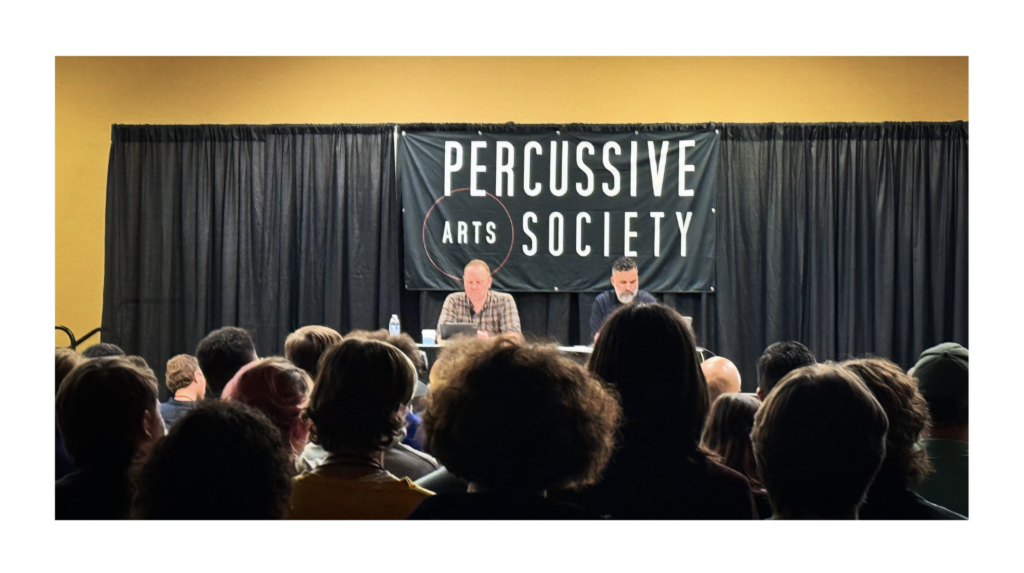
The Friday morning clinic looked at organizational management, specifically how nonprofit organizations within the percussion world function. Liu and Nuñez sat on a panel, highlighting principles and philosophies they use with RCC, including leadership management, personnel choices, team building, decision making and communication styles. They closed the clinic with pragmatic tools that the attendees could utilize in their organizations following the convention.
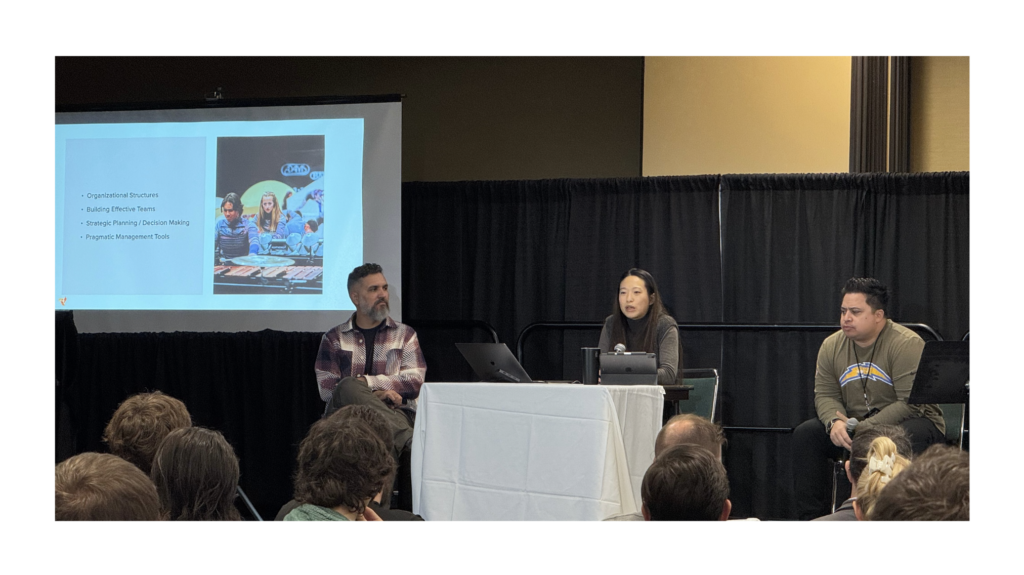
The Friday afternoon clinic was a visual session led by Nuñez and RCC Choreographer Peter Beckhart. Using a hands-on style, the clinic led nearly 60 attendees through stretches and different types of movement, advising them on how to make decisions about an exercise’s shaping and speed.
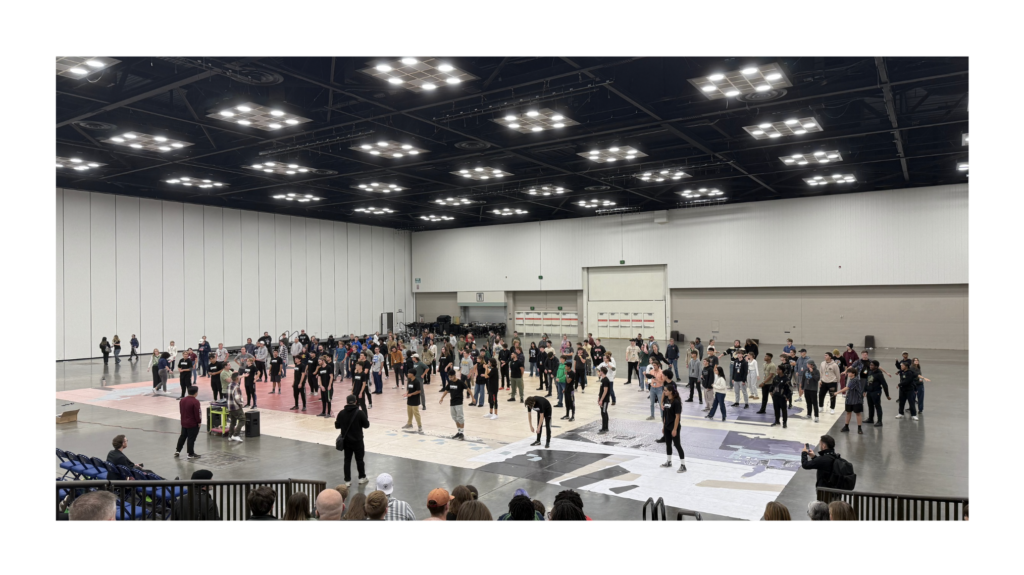
“That visual session on Friday afternoon really showcased in real time how that process works out for us,” Liu said.
The Saturday clinic acted as a showcase. On a large stage, RCC’s 2024 cast played through a variation of etudes, warmups, excerpts from their 2022 and 2023 shows, and a full run-through of their 2024 production. This was a way for RCC to highlight its training, show preparation, design concepts, and music in one final package, Liu said.
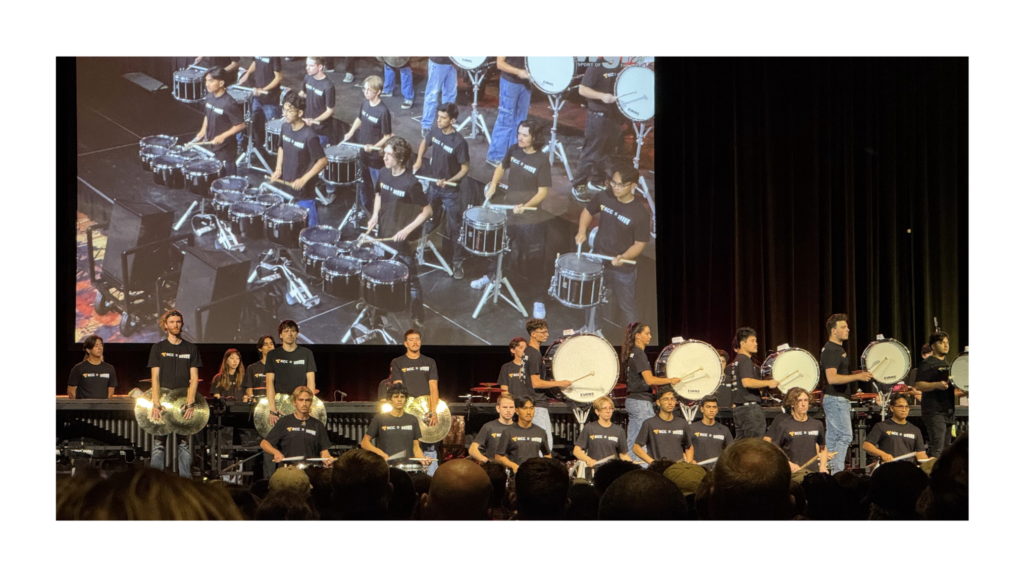
“Now that we’ve gone through three sessions of other elements and other factors in this activity, the final showcase was really a culmination of all the pieces working together,” Liu said.
Following the success of its experience at PASIC, Liu said she hopes RCC can return in future years to collaborate once more.
“For us, it was a really positive experience,” Liu said. “We really do hope, one, to see future collaborations between our organizations, and two, ways we can continue to facilitate a platform for education and for sharing of the knowledge.”
In the meantime, RCC is working diligently on its 2025 production and plans to attend local and national events as usual. In February, RCC is holding a clinic of its own to offer an educational gathering space for the percussion community, using its PASIC experience as good practice—for both the educators and members.
“This is unlike anything that a typical marching percussion member would experience, so this is really, really special for them,” Liu said. “I know that the experience that they had, they’re going to take it with them, lifelong.”
About the Author:
Kellie Finch is an undergraduate student at the University of North Carolina at Chapel Hill pursuing her BA in Media and Journalism through the Hussman School of Journalism and Media. At UNC, she is a member of the Marching Tar Heels in the tenor saxophone section. She participated in WGI winds during all four years of high school playing the alto saxophone, where she discovered her love for music and the activity through her experiences and the people she met.















